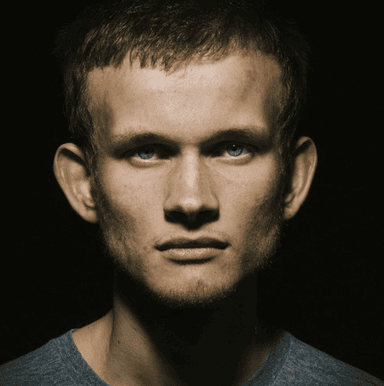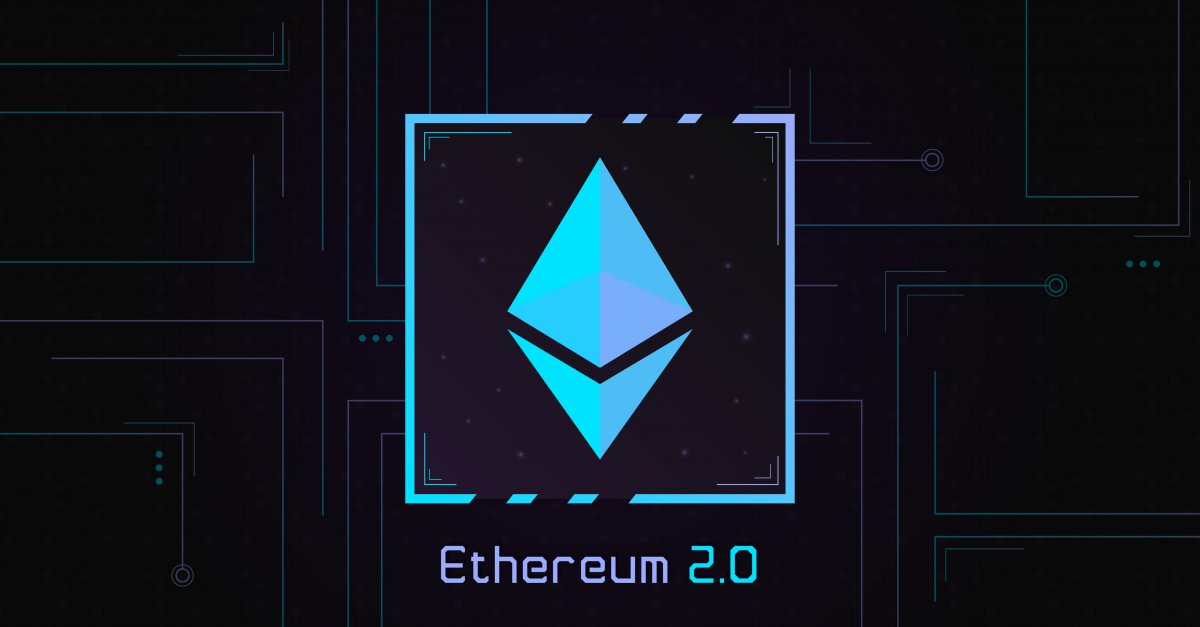
Vitalik Buterin
Vitalik Buterin: Co-Founder of Ethereum and Blockchain Visionary
Vitalik Buterin, a Russian-Canadian programmer and writer born in 1994, is widely recognized as the primary visionary and a key co-founder of Ethereum. Launched in 2015, Ethereum transcended the initial concept of Bitcoin as purely peer-to-peer cash, introducing a programmable Blockchain capable of executing Smart Contracts. This innovation became the bedrock for vast ecosystems including Decentralized Finance (DeFi), Non-Fungible Tokens (NFTs), and Decentralized Autonomous Organizations (DAOs), fundamentally shaping the Web3 landscape. Buterin remains one of the most influential intellectual figures in the cryptocurrency and blockchain space.
"Whereas most technologies tend to automate workers on the periphery doing menial tasks, blockchains automate away the center. Instead of putting the taxi driver out of a job, blockchain puts Uber out of a job and lets the taxi drivers work with the customer directly." – Vitalik Buterin

Early Life and Entry into Crypto
Born in Kolomna, Russia, Vitalik Buterin moved to Canada with his family at age six. He displayed exceptional mathematical and programming abilities early on, being placed in gifted education programs. Introduced to Bitcoin around age 17 by his father, Dmitry Buterin (himself a computer scientist), Vitalik initially expressed skepticism but soon became deeply involved. In 2011, he co-founded Bitcoin Magazine, contributing numerous articles and establishing himself as an early thinker in the space while still a teenager. He briefly attended the University of Waterloo before dropping out in 2014 to accept a Thiel Fellowship and focus entirely on Ethereum.
Interesting Facts:
- Gifted Child: Recognized early for talents in math, economics, and programming.
- Philanthropy: Known for significant charitable donations, including a large contribution of SHIBA Inu tokens (worth over $1 billion at the time) to India’s COVID-19 relief fund in 2021, and support for longevity research and other public goods.
- Language Aptitude: Reportedly learned Mandarin fluently in a matter of months.
- Recognition: Featured in Forbes' "30 Under 30" and "40 Under 40" lists, and received an honorary doctorate from the University of Basel (2018).
The Genesis of Ethereum (2013-2015)
While deeply involved with Bitcoin, Buterin recognized its limitations. Bitcoin's scripting language was intentionally restricted, primarily supporting currency transactions. Buterin envisioned a more versatile blockchain – effectively a decentralized "world computer" – capable of running any type of application users could program.
- The Whitepaper (Late 2013): Buterin crystallized this vision in the Ethereum White Paper, outlining this new blockchain platform with a Turing-complete programming language enabling the creation of smart contracts and decentralized applications (dApps).
- Co-Founders & Crowdsale (2014): Realizing the scale of the project, Buterin assembled a team of co-founders (including figures like Gavin Wood, Joseph Lubin, Charles Hoskinson, Anthony Di Iorio, Mihai Alisie, Amir Chetrit, and Jeffrey Wilcke). Development was funded through an online public crowdsale of Ether (ETH), the network's native token, in mid-2014. This pre-sale raised over $18 million worth of Bitcoin, becoming one of history's most successful early crowdfunding events (often considered an early form of Initial Coin Offering - ICO).
- Mainnet Launch (2015): The Ethereum mainnet, known as the "Frontier" release, officially went live on July 30, 2015, allowing users and developers to begin interacting with the live blockchain.

Key Ethereum Developments & Challenges
Ethereum's journey has included groundbreaking innovations and significant challenges:
Ethereum's journey has included groundbreaking innovations and significant challenges:
- The DAO Hack and Contentious Fork (2016): A major early crisis occurred when "The DAO," a large decentralized venture fund built on Ethereum, was exploited due to a vulnerability in its smart contract code, leading to the draining of millions of dollars worth of ETH. After intense community debate about the principle of immutability versus rectifying the theft, a majority supported a controversial hard fork. This occurred on July 20, 2016 (at block 1,920,000), effectively rolling back the blockchain state to before the hack and returning the stolen funds. This fork created two distinct chains: Ethereum (ETH), the chain that implemented the reversal, and Ethereum Classic (ETC), which preserved the original, unaltered transaction history.

- Ethereum's Evolution: Post-Merge Roadmap: Ethereum successfully transitioned from energy-intensive Proof-of-Work (PoW) to the environmentally friendly Proof-of-Stake (PoS) consensus mechanism via "The Merge" on September 15, 2022. Current development, often outlined by Buterin in stages like "The Surge," "The Scourge," "The Verge," "The Purge," and "The Splurge," focuses on key areas:
- Scalability (The Surge): Enhancing transaction throughput primarily via Layer 2 scaling solutions (like rollups) and incorporating upgrades like Proto-Danksharding (EIP-4844 via the Dencun upgrade) to make Layer 2 transactions cheaper.
- Security & Decentralization (The Scourge): Mitigating risks related to Maximal Extractable Value (MEV) and potential centralization pressures within the PoS staking ecosystem.
- Verification Efficiency (The Verge): Making it easier and faster to verify blocks, potentially using technologies like Verkle trees and advancements in Zero-Knowledge Proofs.
- Protocol Simplification (The Purge): Reducing network complexity and data storage requirements for node operators, potentially through history expiry mechanisms (EIP-4444).
- Miscellaneous Enhancements (The Splurge): Implementing various other improvements, including finalizing Account Abstraction (ERC-4337) to enhance user experience and wallet functionality.

Impact and Ongoing Influence
Vitalik Buterin's influence extends far beyond the initial creation of Ethereum:
Vitalik Buterin's influence extends far beyond the initial creation of Ethereum:
- Foundation for Web3: Ethereum's smart contract capabilities became the cornerstone technology enabling the explosion of DeFi protocols, the mainstream emergence of NFTs, the functioning of DAOs, and experimentation within the Metaverse and GameFi sectors. It remains the dominant platform for decentralized application development by most metrics.
- Intellectual Leadership: Buterin continues to be a leading voice and prolific writer in the blockchain space. Through his blog, research papers, and public appearances, he explores and contributes to cutting-edge topics including advanced scalability solutions (rollups, sharding concepts), privacy technologies (like ZK-SNARKs/STARKs), blockchain governance models, improvements to Proof-of-Stake, Account Abstraction, crypto-economics, and the broader philosophical implications of decentralized technology. His recent focus often includes enhancing Layer-1 privacy features incrementally.
- Driving Innovation: His ideas and analyses often set the agenda for research and development not only within the Ethereum community but across the wider blockchain industry.
Notable Quotes from Vitalik Buterin
"Whereas most technologies tend to automate workers on the periphery doing menial tasks, blockchains automate away the center. Instead of putting the taxi driver out of a job, blockchain puts Uber out of a job and lets the taxi drivers work with the customer directly."
"Ethereum is a general-purpose blockchain. If Bitcoin is a pocket calculator, Ethereum is a smartphone."

Conclusion: Architect of the Decentralized Future
Vitalik Buterin stands as a uniquely influential figure in the 21st century. As the primary visionary behind Ethereum, he provided the technological foundation that unlocked much of the innovation associated with Web3, DeFi, and NFTs. His guidance was central to Ethereum's successful transition to a more sustainable Proof-of-Stake consensus. Beyond the initial creation, Buterin continues to shape the industry through his ongoing research, writing, and intellectual leadership, pushing the boundaries of blockchain technology, scalability, privacy, and its potential societal implications. While Ethereum's development is a vast collaborative effort, Buterin's contributions remain pivotal to its evolution and the broader exploration of decentralized systems.

